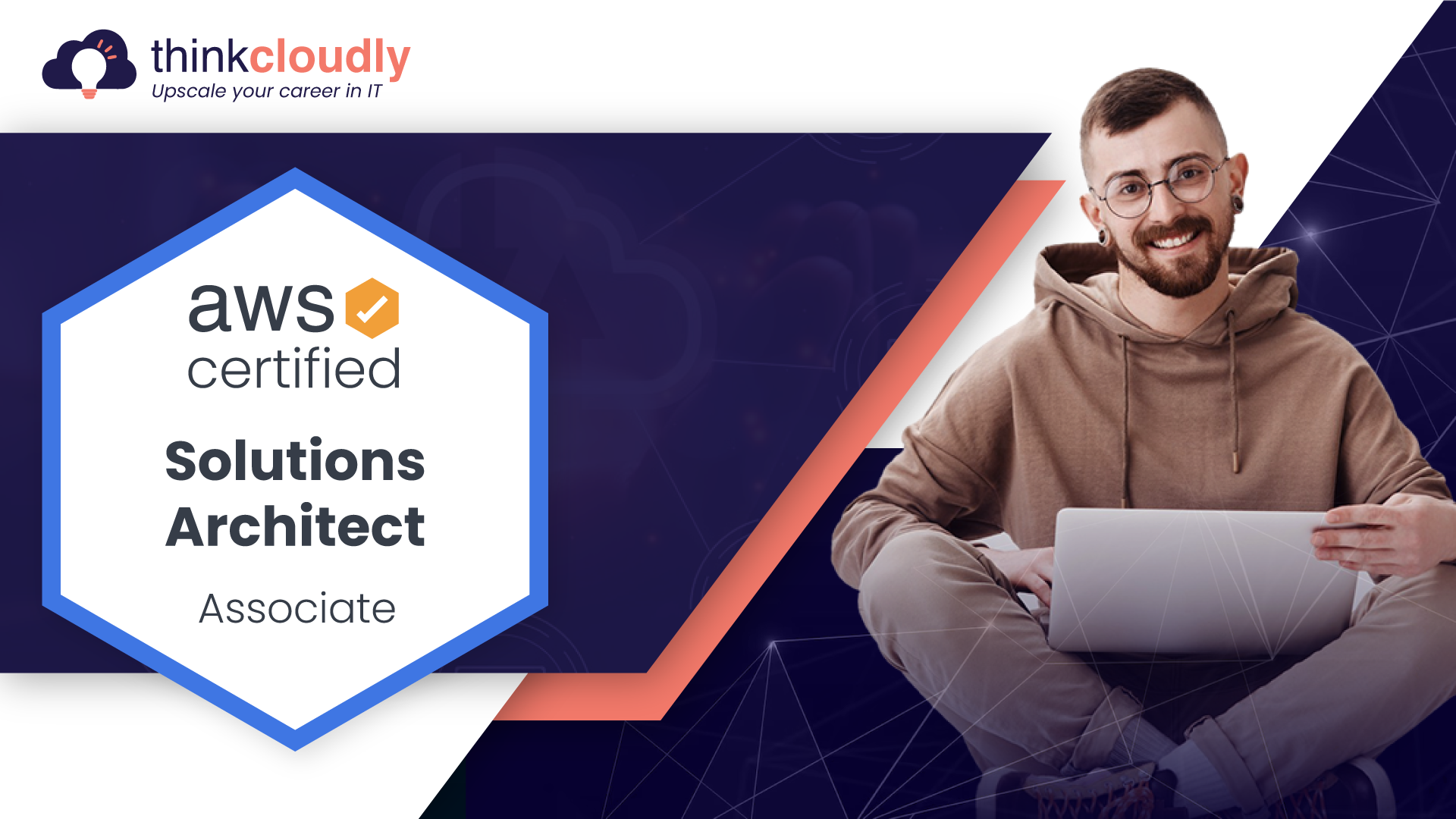With the global cloud market expected to reach $225 billion by 2024, it’s no surprise that IT professionals are scrambling to earn the AWS Cloud Practitioner Certification by then. But what does it take to become an AWS Cloud Practitioner in three years? We talked to current practitioners about their jobs, salaries, and what skills they need to develop if they want to become one too. Here’s what we found out.
Why AWS?
AWS leads the industry by achieving a 32% market share in the major cloud services category. Some of the world’s most popular brands, such as Facebook, Netflix, Adobe, and BBC, depend on it to power their leading projects. Consequently, an AWS certification can help get you a foot in the door for that dream job at the best company.
The recent development of AWS is fast and plenty of big companies are rapidly hiring new employees to make sure it’s sustained. With the rising number of new cloud businesses, there’s a lot of new work for cloud services.
AWS Cloud Practitioner Jobs: Skills and Roles
Amazon Cloud Practitioner jobs encompass roles that require a fundamental understanding of AWS services and cloud concepts. In the AWS Cloud Practitioner job description, employers typically seek candidates who can confidently navigate the AWS Cloud, comprehend its global infrastructure, and demonstrate proficiency in basic cloud services. Key AWS Cloud Practitioner skills include familiarity with cloud cost management, security best practices, and foundational knowledge of essential AWS services like EC2, S3, and RDS. These roles often involve assisting teams in optimizing costs, driving operational efficiency, and contributing to the successful implementation of cloud solutions across diverse industries.
What does an AWS Cloud Practitioner do?
Now that we know why should we go for AWS certifications, let’s understand what AWS Cloud Practitioners do during their day-to-day office hours.
Boost your earning potential with AWS expertise. Explore our certified AWS Courses for a high-paying career
Day-to-day Roles and Responsibilities:
- You will be Implementing AWS IAM policies and configuring VPCs to create a scalable and secure network for the application workloads.
- An AWS cloud practitioner is generally the client’s point of contact for High Priority technical issues and new requirements.
- They also act as technical leads and mentors for the junior members of the team.
- As an AWS architect, you will have to analyze workloads requirements and work with different IT stakeholders to define proper sizing for cloud workloads on AWS.
- Build, Deploy, and Manage production workloads including applications on EC2 instances, APIs on Lambda Functions, etc.
- Use the Amazon Web Services Console to administer and support client databases on AWS.
- Support select Remote Managed Services/On-Premise Oracle database clients as required.
- Plan and carry out proactive and preventative maintenance including backups, refreshes, stats gathering, indexes, patching, version updates/upgrades, data fixes, tuning, etc.
- Open, manage, and resolve SRs with both Oracle Support and AWS Support
- Execute critical events SLA management and first response.
- Utilize analytical and problem-solving skills, working both independently and as part of a team.
Build Your Career as a
AWS Cloud Architect
- Live Projects
- Resume / Interview Preparation

What Skills Do I Need to Become an AWS Certified Cloud Practitioner?
Business Skills:
- Bringing business visions to life by understanding how hardware and software systems work.
- Know how to deal with scalability challenges.
- Know the technical details of any project so they can make a convincing case for buy-in.
- Manage integration challenges with third-party products.
- Understanding end-user issues and their work processes can lead to solutions that improve efficiency.
Technical Skills:
- AWS architecture and application disposition administration plans to adopt cloud solutions.
- You should be able to manage and monitor cloud platforms.
- You should be familiar with data security and compliance laws.
- Networking and security skills should be mastered.
- Being a professional, you should be knowledgeable about managing complex projects using tools like Jira.
- It is recommended that you be familiar with Linux OS, where you should know how to utilize Unix commands and perform Docker containerization.
- Become familiar with the tools that are used for building and deploying applications in the AWS environment, such as Ansible, Chef, Docker, and Jenkins, among others.
- The ability to design and develop applications for the cloud is crucial.
Other than these Business skills and technical skills one should be :
- Innovative.
- Always ready to learn and adopt new things.
- They should have management skills.
- One should also have decision-making powers.
What is the average salary of an AWS Certified Cloud Practitioner?
A cloud computing solutions architect will work in building, designing, and maintaining efficient, scalable, and cost-effective AWS cloud environments on a daily basis. He or she will also need to stay up-to-date in the field of cloud computing. As per Glassdoor based on this knowledge and experience, an AWS Cloud Practitioner can be paid anywhere from $98,000 to $100,000 per year.
AWS Cloud Practitioner Jobs
Amazon Web Services Cloud Practitioner certification is the basic certification you need to achieve to enter the industry. However, just attaining a certificate does not mean that you would get a good pay scale for your job position. For that, you require practical knowledge of how multiple AWS concepts are implemented in real-time problems. Hence, an AWS certification, along with practical exposure, would place you ahead of your competitors when it comes to getting hired by top MNCs.
List of few companies that hire AWS Cloud Practitioners:
- IBM
- Virtusa
- Accenture
- TCS
- Infosys
- Syntax Systems Ltd.
- CGI
- Cognizant
- Deloitte
- VMware
You may also check our blog on AWS interview Questions and answers
Boost your career with AWS Cloud Practitioner Certification!
Earning an AWS cloud practitioner certification will give you the opportunity to show future employers your skills in designing and deploying well-architected solutions. Plus, it makes them more confident in your abilities because they know they can rely on you when they need you most.
Thinkcloudly’s AWS cloud practitioner allows you to learn the core skill set required for designing and deploying dynamic, scalable, highly available, fault-tolerant, and reliable applications on AWS.
- The four fundamental services of AWS
- An Introduction to AWS WAF – All you need in one Article
- AWS DynamoDB – A serverless solution for your database
- AWS Cloudshell in 6 quick and easy steps
- An introductory article on AWS EC2
To summarize, getting an AWS Certified Cloud Practitioner is a fantastic first step for IT professionals looking to enter the fast- increasing cloud computing area. With a competitive Certified AWS Cloud Practitioner salary ranging from $98,000 to $100,000 per year, this certification not only verifies your fundamental understanding of AWS services but also increases your employability in a market where cloud talents are in high demand.
Understanding the distinctions between Cloud Practitioners and Solutions Architects is critical as you navigate the roles. While Cloud Practitioners learn the fundamentals of AWS and its services, Solutions Architects go deeper into building and deploying complex cloud solutions.
An AWS Cloud Practitioner is a valuable asset to enterprises, capable of supporting cloud ambitions while increasing operational efficiencies. With hands-on experience and the necessary skills, you can use this certification to launch a lucrative career in cloud computing. Explore further resources to expand your knowledge and take the next step in your cloud adventure!














No comment yet, add your voice below!